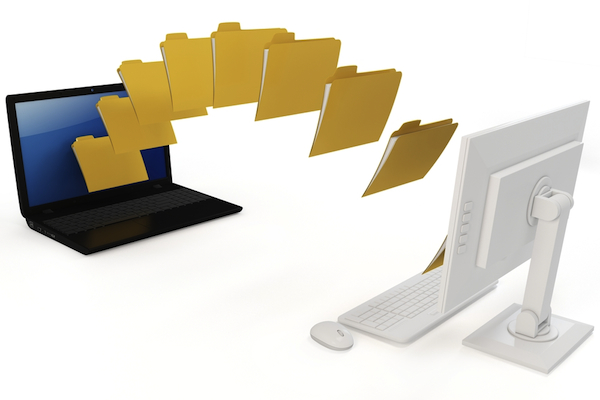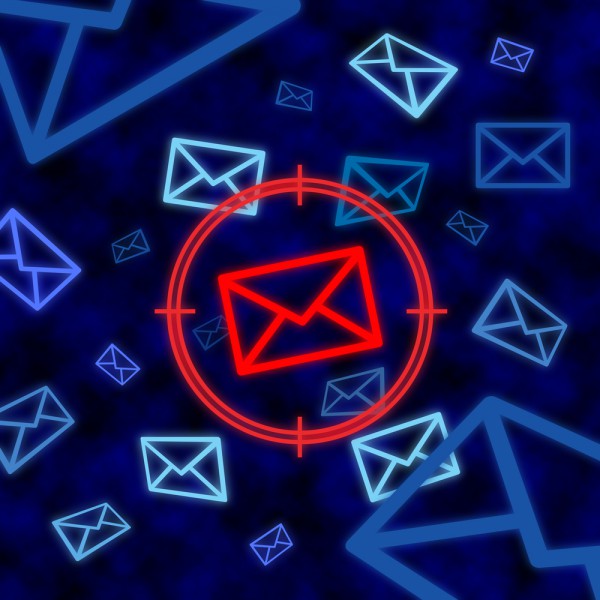
Phishing attack spoofs WeTransfer notifications
Despite the rise of cloud-based collaboration services it's still common for people to exchange information and documents by email. Of course you still need a way of handling larger attachments.
The latest social engineering attack uncovered by Armorblox spoofs a file-sharing notice from the popular WeTransfer platform that's used by individuals and businesses alike.

DuckDuckGo launches privacy-focused @duck.com email forwarding
DuckDuckGo is a pretty cool company that focuses heavily on privacy. Its claim to fame is its search engine that aims to compete with the likes of Google and Bing, but without tracking you. Believe it or not, its search results are pretty good comparatively, although Google still edges it out.
Over time, DuckDuckGo has launched its own web browser and browser extensions, constantly trying to keep humans safe from the eyes of "Big Tech." And now the company announces its latest creation -- @duck.com email accounts.

A majority of email links lead to malicious sites
A new email security report from GreatHorn reveals that 30 percent of links received by email lead to malicious sites.
Spoofed email accounts or websites are the most experienced form of a business email compromise (BEC) attack as 71 percent of organizations acknowledge they have seen one over the past year. This is followed by spear phishing (69 percent) and malware (24 percent).

Socially engineered email attacks prove to be more effective
The latest quarterly threat report from Abnormal Security shows that increasingly sophisticated and novel socially engineered email attacks that bypass legacy defenses are driving 50 percent higher engagement than traditional email attacks such as credential phishing.
The report also shows that between the first week of July 2020 and the first week of April 2021, the percentage of companies across industries getting hit with vendor email compromise (VEC) attacks increased nearly 120 percent.

32 percent of Americans are unaware of email tracking
A new survey from email service OnMail reveals that 93 percent of Americans think it's important that companies don't track their email, however, 32 percent don't know that leading email providers do it for advertising purposes.
Interestingly this view is remarkably consistent across age groups with 93 percent or more across all groups believing it's important that businesses don’t track the types of email you open.

Three billion spoofed emails sent each day
A new report looking at trends in DMARC adoption shows that while take up of the identity verification technology is increasing, three billion messages per day are still spoofing the sender's identity.
The study from Valimail shows that email remains a favourite attack route, implicated in over 90 percent of all cyberattacks with the pandemic providing a new focus.

Return to offices means new opportunities for phishing
The move to home working provided new opportunities for phisherfolk, but as many people start to return to their offices the attackers are pivoting to exploit that too.
A new report from email phishing protection specialist INKY shows attacks are capitalizing on vulnerability and the desire for accurate information about returning to the office in-person.

Why email is still the favorite way of delivering cyberattacks [Q&A]
Although business IT has seen many changes over the last year, email remains the main vector for carrying out cyberattacks.
In its latest Global Security Report Zix looks at the trends in email attacks over the last year and the impact they have. We spoke to David Wagner, president and CEO of, Zix to find out more.

SolarWinds-style email compromise attacks go mainstream
The supply chain attack involving SolarWinds software last year has caused ripples throughout the cybersecurity industry, not least because it went undetected for nine months.
The attack was able to bypass traditional email security by exploiting trusted communications routes between vendors and customers. A worrying new report from Abnormal Security shows that this technique is becoming a mainstream attack vector.

Never send the wrong email attachment again
Many of us will at some point have attached the wrong file to an email or sent an attachment to the wrong person.
This is more than an inconvenience as it could end up exposing sensitive data. But thanks to a new feature from Tessian you may never make an attachment error again.
Email compromise attacks are on the increase as tactics shift
Business email compromise (BEC) attacks have increased in six out of eight industries according to a new report from Abnormal Security.
The overall volume of BEC attacks increased 15 percent from Q2 to Q3, but the energy industry experienced a massive 93 percent rise.

How BEC attacks have adapted to the pandemic [Q&A]
Business Email Compromise (BEC) attacks are increasingly used by attackers as a way of targeting organizations. New research from Abnormal Security indicates that these attacks have adapted to the pandemic, with Zoom becoming the most impersonated brand and COVID-themed attacks surging.
We spoke to Evan Reiser, CEO of Abnormal Security to find out more about what’s been happening and what trends we can expect to see as the year progresses.

60 percent of emails in May and June were fraudulent
The COVID-19 pandemic has seen a spike in scams, phishing and malware across all platforms and attack vectors. The latest mid-year threat landscape report from Bitdefender shows that in May and June, an average of 60 percent of all received emails were fraudulent.
In addition there’s been a five-fold increase in the number of coronavirus-themed attacks and a 46 percent increase in attacks aimed at home IoT devices.

New OnMail service gives you greater control over your inbox
Email has become the preferred communication medium for both businesses and individuals. But useful though it is it can be incredibly frustrating as our inboxes are clogged with spam, advertising and other unwanted material.
Step forward Edison Software, the company behind the Edison Mail app, which is launching its new OnMail service in public beta. Designed to help users control their mail, OnMail lets you choose what can enter your inbox, what mail address reflects your identity, and how your mailbox is structured. Anti-tracking technology is built in to stop invasive ad targeting efforts too.

Qbot trojan evolves to hijack legitimate email threads
The Qbot trojan first appeared in 2008 as banking and credential theft malware, evolving over the years to deliver ransomware attacks, making it something of a Swiss Army knife of the malware world.
Researchers at Check Point have now uncovered a further evolution that allows Qbot to hijack legitimate email conversations from an infected user's Outlook email client, and then spam itself out using those hijacked emails to increase its chances of tricking other users into getting infected.
